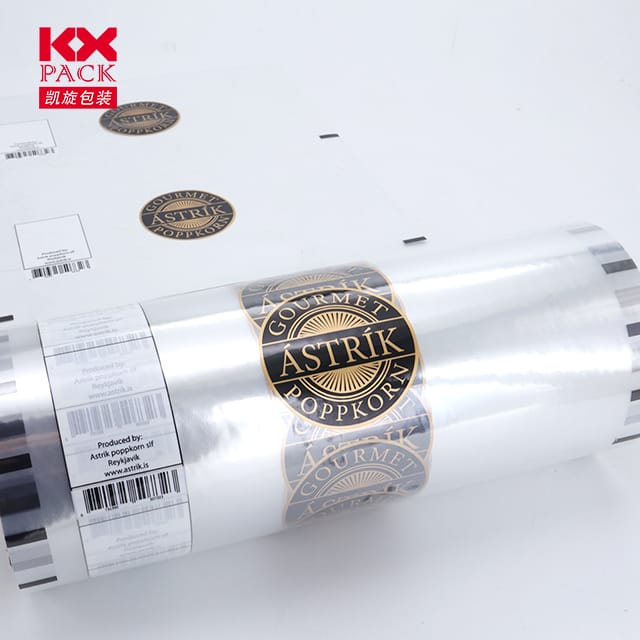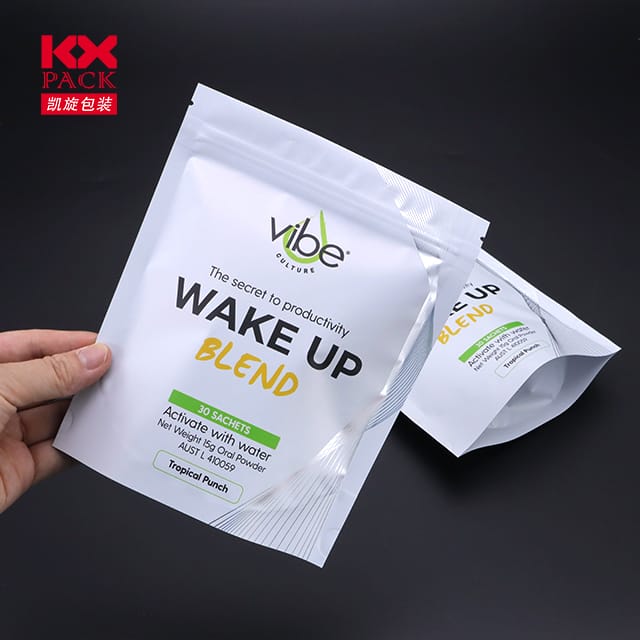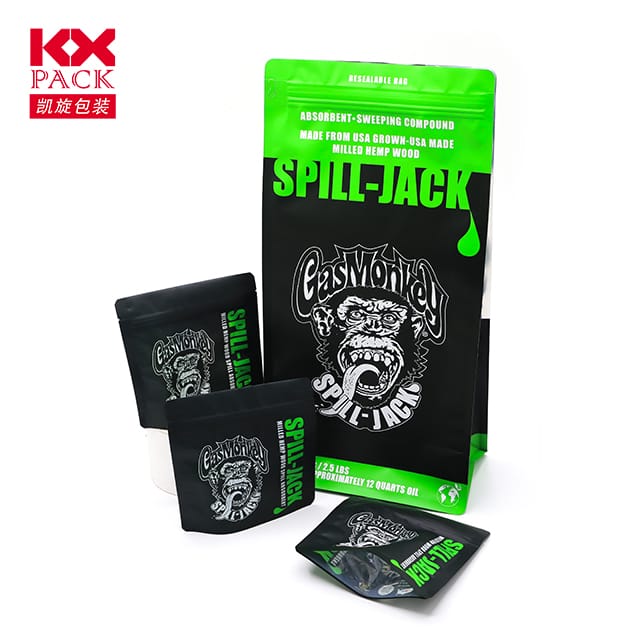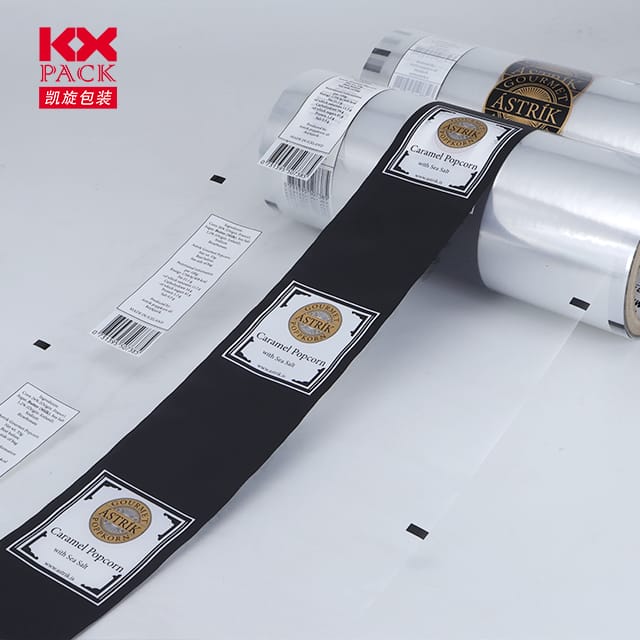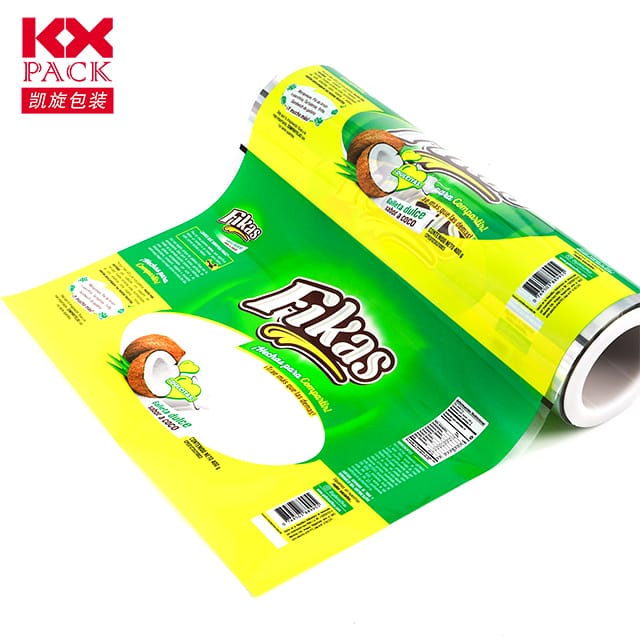วิวัฒนาการและผลกระทบของภาพยนตร์บรรจุภัณฑ์อาหาร: นวัตกรรม, ความยั่งยืน, และความปลอดภัยของผู้บริโภค
ฟิล์มบรรจุภัณฑ์อาหาร
ในโลกสมัยใหม่, ฟิล์มบรรจุภัณฑ์อาหารเป็นที่แพร่หลาย แต่มักถูกมองข้าม. วัสดุบาง ๆ เหล่านี้มีบทบาทสำคัญในการรักษาความสดใหม่, ยืดอายุการเก็บรักษา, และปกป้องอาหารจากการปนเปื้อน. แต่ตามที่ผู้บริโภคต้องการเปลี่ยนไปสู่ความยั่งยืนและความสะดวกสบาย, อุตสาหกรรมบรรจุภัณฑ์อาหารอยู่ระหว่างการปฏิวัติการเปลี่ยนแปลง. มาสำรวจเทรนด์ล่าสุด, นวัตกรรม, และความท้าทายในโลกของฟิล์มบรรจุภัณฑ์อาหาร.
1. ฟิล์มบรรจุภัณฑ์อาหารคืออะไร?
ฟิล์มบรรจุภัณฑ์อาหารเป็นวัสดุยืดหยุ่นที่ใช้ในการห่อ, ผนึก, หรือคลุมผลิตภัณฑ์อาหาร. พวกเขาสามารถทำจากพลาสติก, พลาสติกชีวภาพ, กระดาษ, อลูมิเนียม, หรือคอมโพสิตหลายชั้น. หน้าที่หลัก ได้แก่:
- การเก็บรักษา: ป้องกันการสัมผัสกับอากาศ, ความชื้น, และแสงเพื่อชะลอการเน่าเสีย.
- การป้องกัน: ปกป้องอาหารจากความเสียหายทางกายภาพ, แบคทีเรีย, และศัตรูพืช.
- ความสะดวก: ช่วยให้จัดการได้ง่าย, พื้นที่จัดเก็บ, และการควบคุมส่วน.
- การสร้างแบรนด์: จัดให้มีพื้นผิวสำหรับฉลาก, โลโก้, และข้อมูลทางโภชนาการ.
ตั้งแต่กระดาษห่อขนมแบบใช้ครั้งเดียวไปจนถึงถุงผนึกสำหรับผลิตผลสด, ภาพยนตร์เหล่านี้เป็นส่วนสำคัญในห่วงโซ่อุปทานอาหารทั่วโลก.
2. การเพิ่มขึ้นของทางเลือกที่ยั่งยืน
ฟิล์มพลาสติกแบบดั้งเดิม, ในขณะที่มีประสิทธิภาพ, ได้รับการวิพากษ์วิจารณ์ถึงผลกระทบต่อสิ่งแวดล้อม. พลาสติกแบบใช้ครั้งเดียวก่อให้เกิดมลพิษ, ทำร้ายสัตว์ป่า, และใช้เวลาหลายศตวรรษในการย่อยสลาย. ในการตอบสนอง, อุตสาหกรรมกำลังสร้างสรรค์นวัตกรรมด้วยโซลูชั่นที่เป็นมิตรต่อสิ่งแวดล้อม:
- ภาพยนตร์ที่ย่อยสลายได้ทางชีวภาพ: ผลิตจากวัสดุจากพืช เช่น แป้ง, เซลลูโลส, หรือกรดโพลีแลกติก (ปลา), ภาพยนตร์เหล่านี้พังทลายลงอย่างเป็นธรรมชาติภายใต้เงื่อนไขเฉพาะ.
- ภาพยนตร์ที่สามารถผสมได้: ออกแบบมาเพื่อย่อยสลายในโรงงานทำปุ๋ยหมักทางอุตสาหกรรม, ไม่ทิ้งสารพิษตกค้าง.
- ภาพยนตร์ที่กินได้: สารเคลือบกินได้ที่ทำจากส่วนผสมเช่นสาหร่าย, ไคโตซาน, หรือโปรตีนไม่เพียงแต่ปกป้องอาหารแต่ยังสามารถบริโภคควบคู่ไปด้วยได้, ลดขยะโดยสิ้นเชิง.
- เนื้อหารีไซเคิล: ภาพยนตร์ที่ผสมผสานการรีไซเคิลหลังผู้บริโภค (PCR) พลาสติกช่วยเปลี่ยนเส้นทางของเสียจากการฝังกลบ.
ยี่ห้ออย่างประเภท® และผลิตภัณฑ์เชิงนิเวศน์ กำลังเป็นผู้นำด้านบรรจุภัณฑ์ที่ย่อยสลายได้, ในขณะที่บริษัทต่างๆ ชอบน๊อตปลา กำลังสร้างฟิล์มจากสาหร่ายทะเลที่ละลายน้ำได้.
3. บรรจุภัณฑ์อัจฉริยะ: อนาคตของความปลอดภัยด้านอาหาร
เกินกว่าความยั่งยืน, เทคโนโลยีกำลังเปลี่ยนฟิล์มบรรจุภัณฑ์ให้เป็นเครื่องมืออัจฉริยะสำหรับตรวจสอบคุณภาพอาหาร:
- ตัวบ่งชี้เวลา-อุณหภูมิ (TTI): ฉลากที่เปลี่ยนสีหากอาหารสัมผัสกับอุณหภูมิที่ไม่ปลอดภัย, มั่นใจได้ถึงความสดใหม่.
- เซ็นเซอร์ความสด: เซ็นเซอร์แบบฝังตรวจจับก๊าซ เช่น แอมโมเนียหรือCO₂, ซึ่งบ่งบอกถึงการเน่าเสีย, และแจ้งเตือนผู้บริโภคผ่านแอพสมาร์ทโฟน.
- ฟิล์มต้านจุลชีพ: ผสมด้วยสารประกอบธรรมชาติ เช่น น้ำมันหอมระเหยหรืออนุภาคนาโนเงิน, ฟิล์มเหล่านี้ยับยั้งการเจริญเติบโตของแบคทีเรียและยืดอายุการเก็บรักษา.
ตัวอย่างเช่น, มิมิกา ทัช ได้พัฒนาตัวบ่งชี้การสัมผัสที่จะเป็นหลุมเป็นบ่อเมื่ออาหารไม่ปลอดภัยที่จะรับประทานอีกต่อไป, ช่วยให้ผู้บริโภคมีข้อมูลในการตัดสินใจ.
4. ความท้าทายและการพิจารณา
ในขณะที่อนาคตของฟิล์มบรรจุภัณฑ์อาหารมีแนวโน้มที่ดี, ยังคงมีอุปสรรคหลายประการ:
- ค่าใช้จ่าย: วัสดุที่ยั่งยืนมักมีราคาแพงกว่าพลาสติกทั่วไป, แม้ว่าการประหยัดจากขนาดจะค่อยๆลดราคาลงก็ตาม.
- ผลงาน: ฟิล์มที่ย่อยสลายได้ทางชีวภาพอาจขาดคุณสมบัติเป็นอุปสรรคเหมือนพลาสติกแบบดั้งเดิม, ส่งผลให้อายุการเก็บรักษาสั้นลงสำหรับผลิตภัณฑ์บางชนิด.
- พฤติกรรมผู้บริโภค: ผู้บริโภคจำนวนมากยังคงสับสนเกี่ยวกับวิธีการกำจัดบรรจุภัณฑ์ที่ย่อยสลายได้หรือย่อยสลายได้ทางชีวภาพอย่างเหมาะสม, นำไปสู่การปนเปื้อนในกระแสน้ำรีไซเคิล.
- ระเบียบข้อบังคับ: รัฐบาลทั่วโลกกำลังบังคับใช้กฎระเบียบที่เข้มงวดมากขึ้นเกี่ยวกับพลาสติกแบบใช้ครั้งเดียว, ผลักดันให้บริษัทปรับตัวได้อย่างรวดเร็ว.
5. บทบาทของผู้บริโภคในการขับเคลื่อนการเปลี่ยนแปลง
เมื่อความตระหนักรู้เติบโตขึ้น, ผู้บริโภคต้องการทางเลือกที่ยั่งยืนมากขึ้น. โดยเลือกใช้ผลิตภัณฑ์ที่บรรจุในฟิล์มที่เป็นมิตรต่อสิ่งแวดล้อม, สนับสนุนแบรนด์ด้วยแนวปฏิบัติที่โปร่งใส, และทิ้งบรรจุภัณฑ์อย่างเหมาะสม, บุคคลสามารถมีอิทธิพลต่อมาตรฐานอุตสาหกรรม.
สำหรับปลาย: มองหาใบรับรองเช่นโอเค ปุ๋ยหมัก, สถาบันผลิตภัณฑ์ย่อยสลายทางชีวภาพ (บีพีไอ), หรือTÜV ออสเตรีย เพื่อให้แน่ใจว่าบรรจุภัณฑ์เป็นไปตามคำกล่าวอ้างด้านความยั่งยืน.
บทสรุป: สรุปฟิล์มบรรจุภัณฑ์อาหาร
ฟิล์มบรรจุภัณฑ์อาหารไม่ได้เป็นเพียงการรักษาอาหารให้ปลอดภัยอีกต่อไป แต่ยังเกี่ยวกับการปกป้องโลกอีกด้วย, เพิ่มความสะดวกสบาย, และส่งเสริมผู้บริโภค. ในขณะที่นวัตกรรมดำเนินต่อไป, เราคาดหวังได้อย่างชาญฉลาดยิ่งขึ้น, เป็นมิตรกับสิ่งแวดล้อมมากขึ้น, และโซลูชั่นที่มีประสิทธิภาพมากขึ้นในการครองตลาด.
ครั้งต่อไปที่คุณแกะขนมหรือโยนบรรจุภัณฑ์ลงในถังขยะ, ใช้เวลาสักครู่เพื่อพิจารณาการเดินทางของเนื้อหา. ด้วยกัน, เราสามารถขับเคลื่อนความต้องการบรรจุภัณฑ์ที่เป็นมิตรต่อร่างกายและโลกของเราได้.
คุณคิดอย่างไรกับบรรจุภัณฑ์อาหารที่ยั่งยืน? แบ่งปันความคิดหรือแบรนด์ที่เป็นมิตรต่อสิ่งแวดล้อมที่คุณชื่นชอบในความคิดเห็นด้านล่าง! 🌍🍃📦


